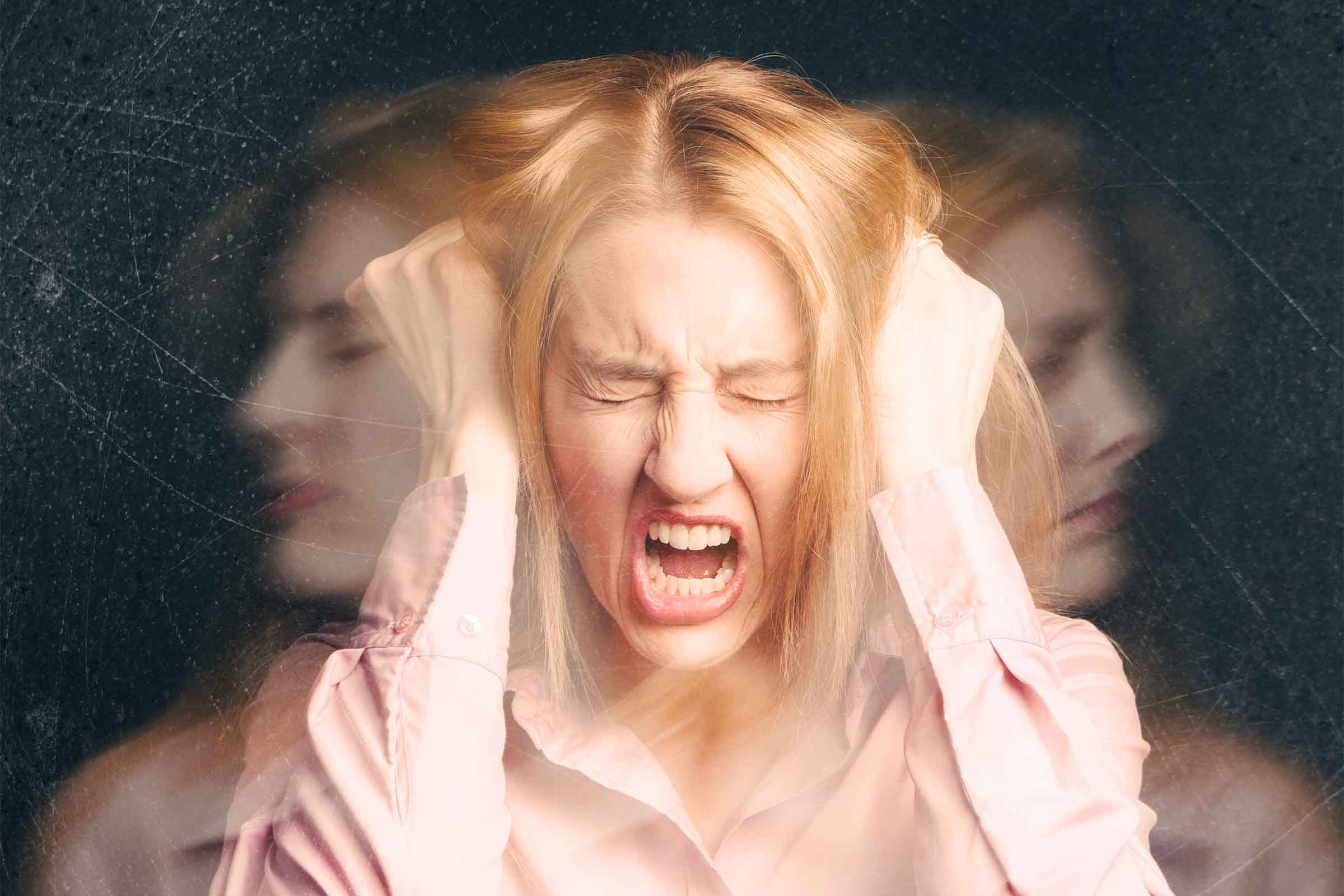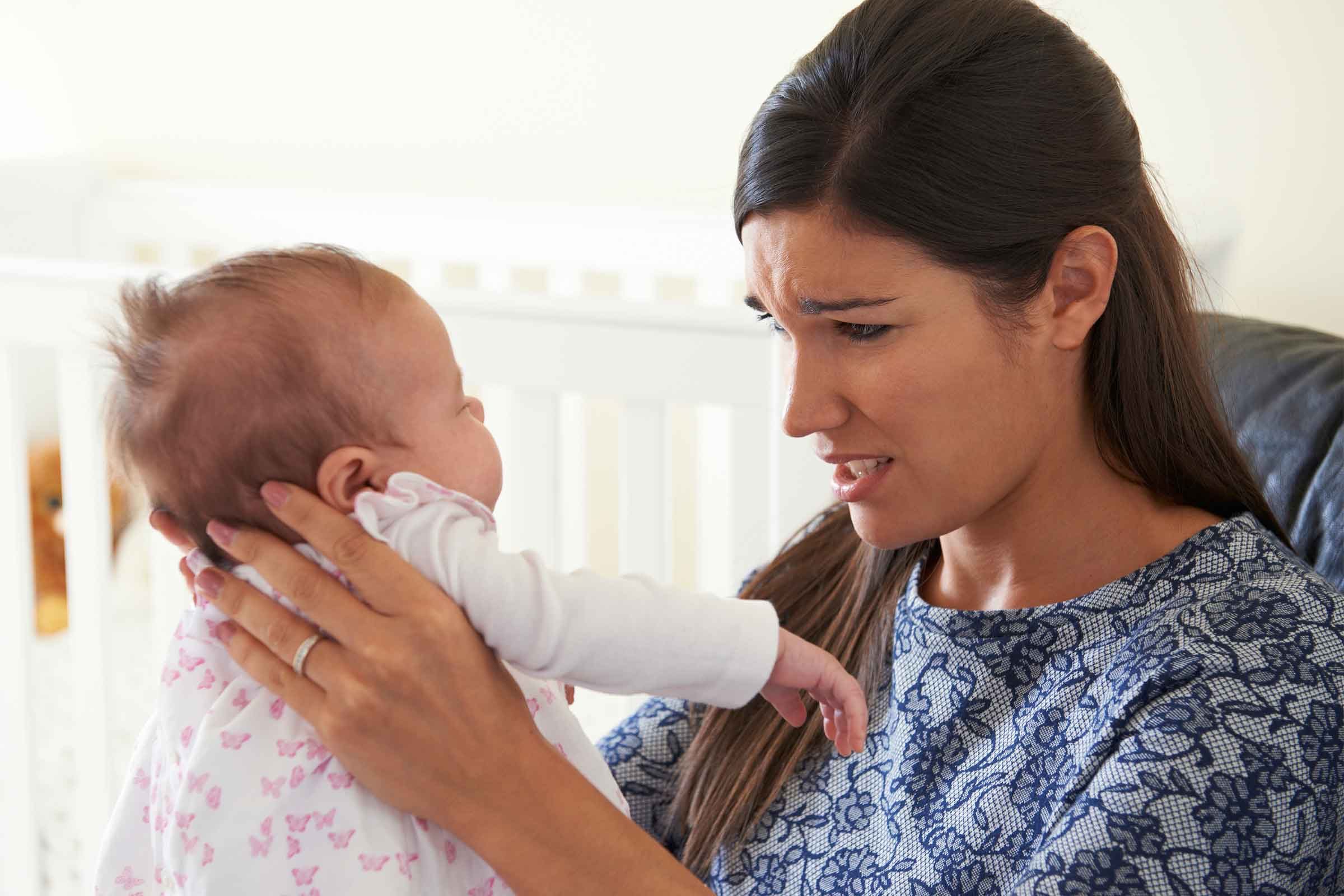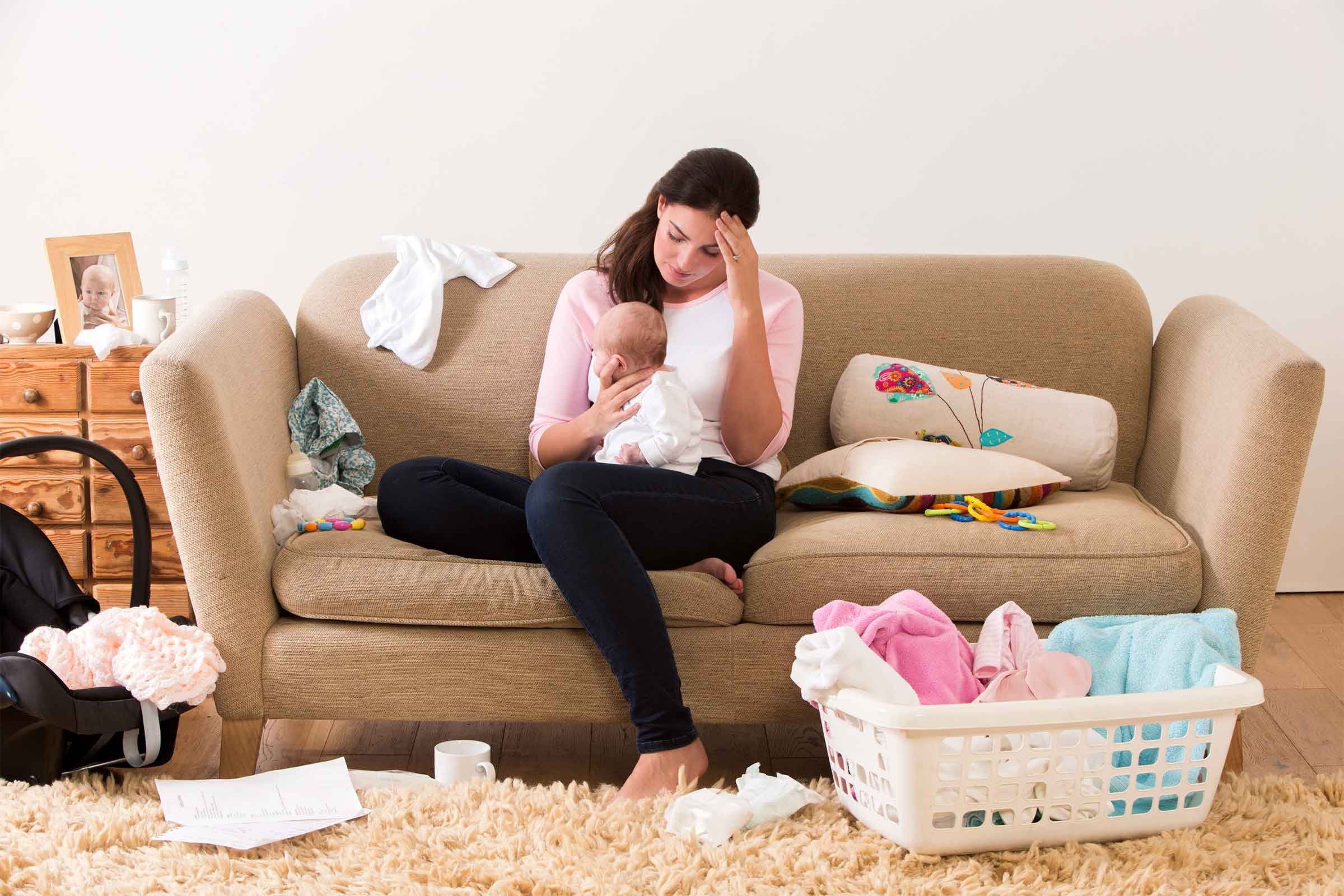
Myth: Postpartum depression is just like typical depression
Postpartum depression is quite different from typical depression in that the symptoms can manifest into bouts of anger and rage. Kimberly Solo, LICSW has a private practice in Westwood, Massachusetts specializing in treating women with prenatal and postpartum mood disorders says, “Often postpartum depression is typically accompanied by significant irritability and anger. This can manifest into impatience and having a short temper, making it very difficult to deal with the stressors that accompany taking care of a newborn. A woman may often feel intense rage that she has never experienced before.” Watch out for these silent signs that you could have postpartum depression.

Myth: Postpartum depression is a visible condition that others can easily see or sense
It’s assumed that women with postpartum depression can’t get out of bed, are disheveled, and appear severely depressed—which just isn’t true. “Many women look as if they have it all together on the exterior postpartum although they are actually struggling internally. They may be showered, dressed and their house may look neat although on the inside they may be battling with very uncomfortable thoughts and feelings,” says Solo.

Myth: Postpartum depression causes women to hurt their babies
A desire to hurt your child is not a sign or symptom of postpartum depression. Thoughts of hurting one’s child is symptomatic of another condition called postpartum psychosis. According to Postpartum Support International, postpartum psychosis is a rare illness, compared to the rates of postpartum depression or anxiety. It occurs in approximately one to two out of every 1,000 deliveries; whereas postpartum depression affects as many as 15 to 20 percent of new moms. The onset is usually sudden, most often within the first two weeks after giving birth. These two illnesses are very different and should not be confused. A woman with an extreme case of postpartum depression is at greater risk of hurting or killing herself—not her baby.

Myth: Postpartum depression occurs shortly after giving birth
Many new moms experience the “postpartum baby blues” after childbirth, which commonly includes mood swings, crying spells, anxiety and difficulty sleeping. Baby blues typically begin within the first two to three days after delivery and may last for up to two weeks, but postpartum depression is a more severe, long-lasting form of depression that can appear up to a full year after having your baby. Solo says that women can often become confused when they start to notice symptoms of postpartum depression many months after giving birth and therefore don’t take their symptoms seriously enough. “It’s vital that women realize that symptoms can appear and worsen many months following labor,” she says.

Myth: Postpartum depression is the only mental health condition to worry about following birth
“Postpartum anxiety is an extremely common condition that is now being considered to be more prominent than postpartum depression,” says Solo. “Many women believe that it is expected to feel very anxious when taking care of a baby. Although some anxiety during this time period is quite normal and even necessary, when anxious thoughts and behaviors interfere with our ability to take good care of ourselves, this becomes symptomatic of postpartum anxiety.” Postpartum anxiety involves constant worry, racing thoughts, and an inability to sit still, sleep, or eat, among other issues. Every new mom has to memorize these brutal truths.

Myth: Postpartum depression means that a woman doesn’t love her baby
This is one of the biggest myths of all and couldn’t be further from the truth. Postpartum depression is not correlated to how much or how little a woman loves her baby. “It’s a condition caused by many elements including psychological, biological, and hormonal factors that all play a vital role in its manifestation. Depression during this period can impacts a mother’s ability to bond with her baby, although this is not due to the mother’s lack of love for her child,” says Solo.

Myth: Postpartum depression will resolve on its own with time
Postpartum depression is a highly treatable condition that should be addressed with the assistance of a mental health professional. Women should not let these feelings and symptoms linger in hopes they will disappear over time. The Mayo Clinic advises calling your doctor as soon as possible if the signs and symptoms of postpartum depression are getting worse, make it hard for you to care for your baby, make it hard to complete everyday tasks, and especially if they include thoughts of harming yourself or your baby. Always call 911 immediately if you are feeling suicidal. Next, read about what your OB/GYN wants you to know about postpartum depression.